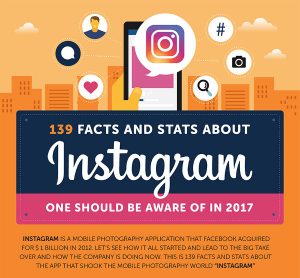In 1452, Leonardo da Vinci wanted a job in Milan so, he put together a list of his skills and accomplishments to make a case for himself. In doing so, he created what is now an essential part of any job search — the resume. But after 500 years, it’s time for a change.
Hiring managers will always want to see your skills and experience, but the way that information is sent and viewed is evolving. Here’s how you can go beyond the old-fashioned, paper resume to stand out from the job-seeking pack.
Build Your Online Professional Profile
LinkedIn isn’t the only place to build your online professional profile. Your profile on sites like AngelList, GitHub, Hired and Interview Jet are just as important as your LinkedIn URL — and can be more important when you’re focusing on a specific industry, like technology. Plus, the more online presence you have, the more likely it is for a hiring manager to find you.
Think of these as easy-to-find versions of your resume with added bonuses like:
- No length or size constraints.
- An online portfolio component without needing to build your own website.
- The ability to link directly to your projects, products, or written posts.
Want to go above and beyond? Show off your past roles with a video, infographic, or portfolio using these:
- Workshape or ResumUP: Create an infographic to tell your career story.
- Squarespace or About.me: Make a quick photography, writing, marketing, design, or development portfolio that shows off your past work without having to build a site from scratch.
Amp Up Your Social Presence
80% of businesses say that cultural fit is a top priority when they’re hiring — so doesn’t it make sense to show off why you’d make a good fit even before you’re called in for an interview?
Think of social media as your personal brand. Your social media profiles shouldn’t just show what you do on a typical Friday night. They should also display what causes you support, what interests you have outside of work, and any shared friends that could put in a good word for you.
Try to spread your posts across as many social channels as possible, keeping the big four in mind:
- Facebook: Great for everyone, but also the most closely checked. Keep it clean.
- Instagram: Great for those going into creative, environmental, wellness, or marketing fields. Show off your creative eye, your favorite recipe, and your hashtag skills.
- Twitter: Great for journalists, techies, teachers, politicians, and more.
- LinkedIn: Great for nonprofit workers, biz dev prospects, recruiters, and all things sales.
Most importantly, make sure your posts are organically “you” and not what you think a hiring manager will want to see.
- Share links to stories you find informative, funny, or useful.
- Show off your adventures — save the party photos for iPhoto.
- Write posts about your expertise and interests on Medium or LinkedIn.
Don’t forget that video is blowing up right now. If you have the recording and editing chops, put something up on YouTube, Vimeo, Facebook Live, Periscope, and Snapchat.
It’s Often Who You Know, So Get Networking
It’s no surprise that hiring managers are two-thirds more likely to hire a candidate referred by a team member. With extra insight into your personality and culture fit, hiring managers have more confidence that you’ll be an awesome addition to the team.
That means you need to get out there and meet people face-to-face at events like:
- Local networking events. Whatever your field, there’s a local networking event for you.
- Meetups. Join meetup groups in your area that interest you, both personally and professionally.
- Networking for entrepreneurs. There are dozens of organizations for entrepreneurs. Join one and learn from your peers.
- Online. Joining professional LinkedIn or Facebook Groups and online communities gives you the opportunity to virtually connect with others in your field.
- Everywhere else. There’s never a bad time to network. Hackathons, fitness classes, a friend’s birthday party, you name it — get out there and make connections.
Don’t Skimp on the Cover Letter
If you thought the cover letter was on the chopping block with your resume, think again. A cover letters is your chance to speak directly to the hiring manager that goes beyond just a plain list of your professional experiences.
Don’t try to write up a one-size-fits-all cover letter, either. Keep these in mind when personalizing each letter:
- Don’t repeat information that can be found elsewhere.
- Do go into detail about specific projects, learnings, or leadership roles.
- Don’t be afraid to add personality.
- Do be respectful without coming off as boring or apathetic.
(29)
Report Post



